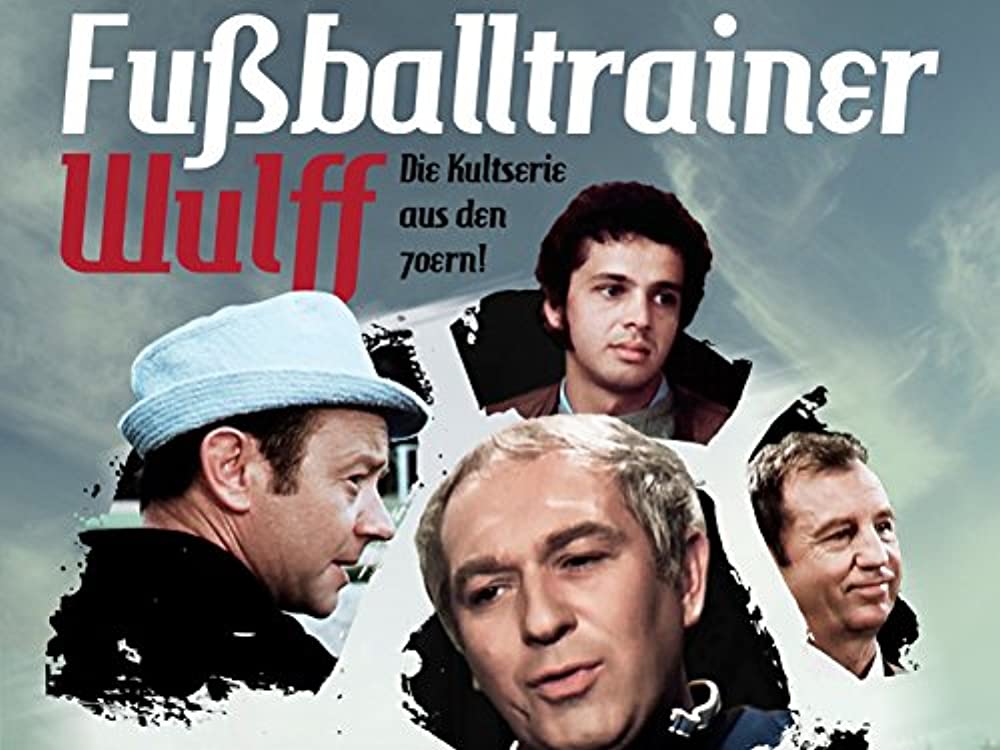L’allenatore Wulff, la nostra Bundesliga
17 Dicembre 2021
di Stefano Olivari

Una delle più belle serie sul calcio, anche se all’epoca si chiamavano telefilm, secondo noi la più bella, è L’Allenatore Wulff (Fußballtrainer Wulff), di cui proprio ieri parlavano con altri vecchi delusi dai vari All or Nothing. Serie vista sulla televisione della Svizzera Italiana (all’epoca non oscurata su mandato della RAI) a metà anni Settanta e ambientata nella Bundesliga 1972-73: forse il periodo migliore del calcio tedesco, inteso come calcio giocato da tedeschi.
Dominava il Bayern Monaco di Maier, Beckenbauer, Breitner e Gerd Müller, stava emergendo il Borussia Mõnchengladback di Vogts, Bonhof, Stielike, Netzer e Heynckes, rinforzato da Simonsen, uno dei pochi stranieri, che era appena arrivato dal Vejle, c’era una classe media clamorosa a partire dal Colonia di Overath.
Harry Wulff è un allenatore che viene ingaggiato dal FC Neuenberg, club immaginario appena promosso in Bundesliga. Club destinato alla retrocessione, fra mille problemi finanziari e di altro tipo (doping, agenti che circuiscono i pochi giocatori decenti come il portiere Unger, episodi di corruzione, media usati dai dirigenti per far circolare notizie false), ma l’anziano Wulff quasi riesce a salvarlo.
Quasi, appunto, perché all’ultima giornata perde 3-2 con l’Amburgo, quando per la salvezza sarebbe bastato un pareggio. Il rigore del 3-3 sbagliato, due volte, da Lowitz, una specie di Margheritoni tedesco, per noi vale Serena a Napoli o Baggio a Pasadena. Nessuno spoiler, perché la serie è di mezzo secolo fa e soprattutto è introvabile: ne esiste solo una versione dvd in tedesco, la tivù svizzera italiana pare non ne abbia nemmeno una copia.
Per farla breve, pur avendo fatto un grande campionato Wulff viene licenziato dal segretario Kapock ed esce dal mondo nel calcio. Nella seconda stagione lo si vede impegnato in vari lavori, ma il richiamo della foresta è troppo grande e così appena lo spogliatoio del Neuenberg, che ora gioca in Regionalliga Sud-Ovest, fa fuori il nuovo allenatore-sergente di ferro, accetta di essere richiamato a furor di popolo e di condurre la squadra ad un’altra promozione in Bundesliga. Il telefilm si chiude proprio alla vigilia della sfida al Bayern Monaco, subito dopo il Mondiale del 1974, e non riprenderà più.
Incredibile la modernità dei temi trattati (anche il calcio femminile!), un mistero come mai la serie non sia proseguita (il protagonista Horst Niendorf ha recitato fino a metà anni Novanta) e un supermistero perché sia quasi introvabile e comunque disponibile solo in tedesco. Fra l’altro nell’Allenatore Wulff il calcio non è un pretesto per raccontare altro, ma proprio per raccontare il calcio. E in questo caso la fiction lo fa meglio dei documentari da ufficio stampa. Ridateci quelle tute, quei dolcevita, quei giacconi (altro che i colpevoli criptogay di Derrick vestiti Hugo Boss), quel calcio professionistico ma, lo stiamo per dire, con dimensioni umane.
One of the most beautiful football series, even if at the time they were called telefilms, in our opinion the most beautiful, is L’Allenatore Wulff (Fußballtrainer Wulff), which just yesterday was being discussed with other old people disappointed by the various All or Nothing. The series was seen on Swiss-Italian television (at the time not blacked out by RAI) in the mid-seventies and was set in the Bundesliga 1972-73: perhaps the best period of German football, in the sense of football played by Germans.
The Bayern Munich of Maier, Beckenbauer, Breitner and Gerd Müller were dominating, the Borussia Mõnchengladback of Vogts, Bonhof, Stielike, Netzer and Heynckes was emerging, reinforced by Simonsen, one of the few foreigners, who had just arrived from Vejle, and there was a clamorous middle class starting with Overath’s Cologne.
Harry Wulff was a coach who was hired by FC Neuenberg, an imaginary club that had just been promoted to the Bundesliga. The club was destined for relegation, amidst a thousand financial and other problems (doping, agents who manipulated the few decent players, such as goalkeeper Unger, episodes of corruption, media used by managers to spread false news), but the elderly Wulff almost managed to save it.
Almost, in fact, because on the last day they lost 3-2 against Hamburg, when a draw would have been enough for salvation. The 3-3 penalty missed twice by Lowitz, a sort of German Margheritoni, is as good as Serena in Napoli or Baggio in Pasadena. No spoilers, because the series is half a century old and, above all, it is impossible to find: there is only a DVD version in German, and the Swiss-Italian television doesn’t even seem to have a copy.
To cut a long story short, despite having had a great championship Wulff is fired by secretary Kapock and exits the world of football. In the second season we see him working at various jobs, but the lure of the forest is too great and so as soon as the Neuenberg dressing room, which now plays in the South-West Regionalliga, gets rid of the new coach-sergeant of iron, he accepts to be recalled by popular acclaim and lead the team to another promotion to the Bundesliga. The series ends on the eve of the challenge to Bayern Munich, just after the 1974 World Cup, and will never resume.
The modernity of the themes dealt with is incredible (even women’s football!), it is a mystery why the series did not continue (the main character Horst Niendorf starred until the mid-1990s) and a super mystery why it is almost impossible to find and only available in German. By the way, in Coach Wulff, football is not a pretext to tell something else, but precisely to tell football. And in this case fiction does it better than press office documentaries. Give us back those tracksuits, those turtlenecks, those jackets (other than Derrick’s guilty cryptogays in Hugo Boss clothes), that professional football but, we are about to say, with human dimensions.





Commenti Recenti